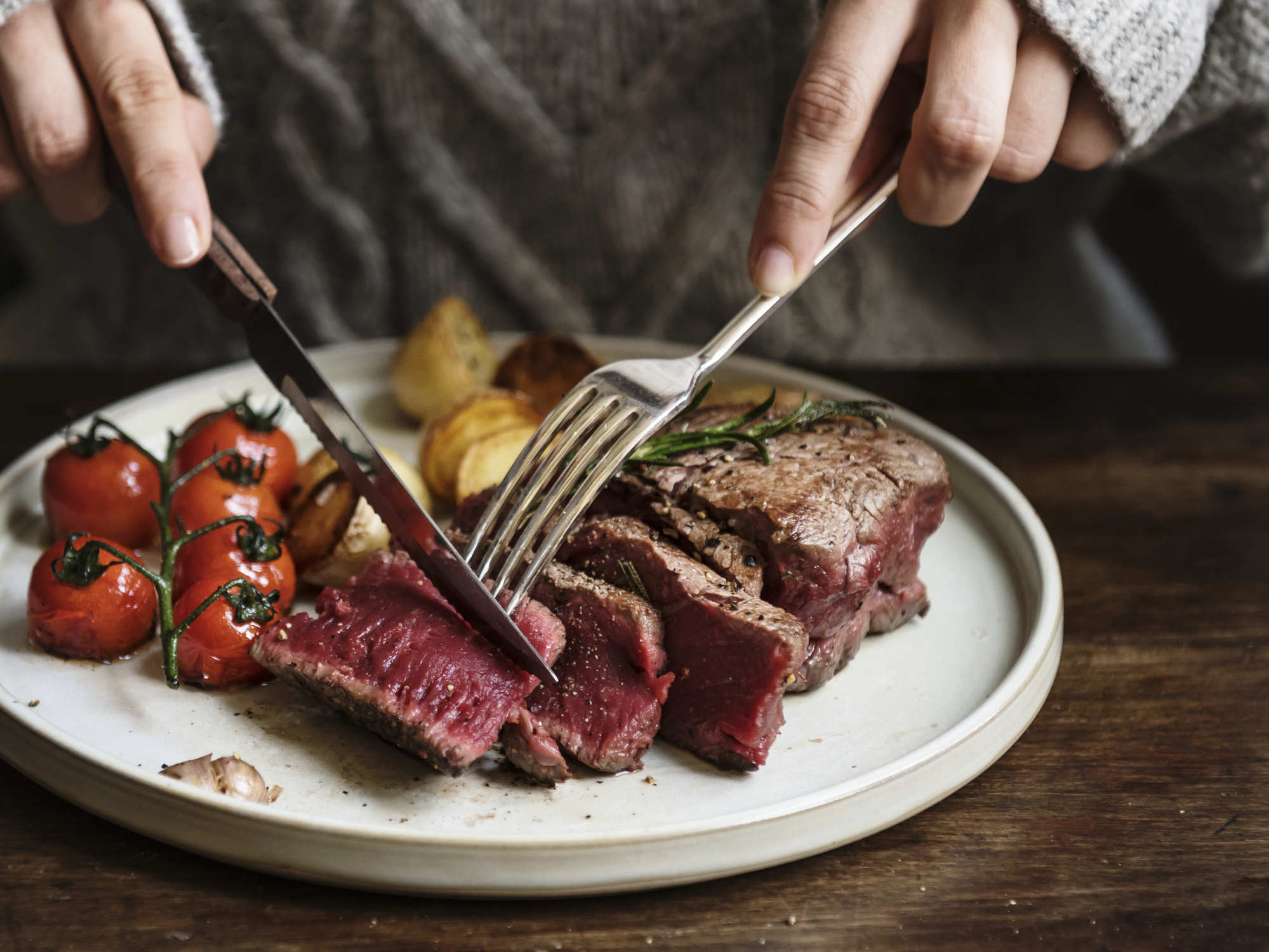

Everything you read may not be about that one big health breakthrough that turns the world upside down…
Sometimes, it’s about research that reinforces potential causes (and cures) of conditions that were already known — but quietly slip back under the rug.
I’m about to tell you about the second kind of research.
It’s been known and reported for over a decade that red meat consumption is associated with an increased risk of chronic disease, including type 2 diabetes.
Yet Americans continue to eat red meat in large amounts — and cases of diabetes continue to rise at alarming rates.
That’s not surprising considering the emphasis that’s been put on sugar and carbs over the years.
Maybe understanding how eating meat increases the risk for diabetes by more than 50 percent — plus recent research that loudly confirms a definite and dangerous connection — can drive this message home…
Connecting the dots between red meat and diabetes
A few years ago, the results of the Singapore Chinese Health Study revealed an interesting reason behind the red meat-diabetes connection…
The study followed 63,257 adults for an average of eleven years to determine if there is any link between meat consumption and the risk of developing diabetes.
Compared with subjects who ate the least red meat and poultry, those who ate the most had a 23 percent and 15 percent increase in risk of diabetes, respectively.
And here’s the interesting thing…
They investigated the association between dietary heme-iron content from all meats and the risk of diabetes and found a dose-dependent positive association. But it may not have been the only culprit…
After adjusting for heme-iron content in the diet, the red meat and diabetes association was still present, suggesting that other chemicals present in red meat could be accountable for the increase in risk of diabetes.
The connection gets stronger
Now comes the most recent finding on the red meat-diabetes connection…
Researchers at the Harvard T.H. Chan School of Public Health analyzed health data from 216,695 participants from the Nurses’ Health Study (NHS), NHS II, and Health Professionals Follow-up Study (HPFS).
They followed up with participants every two to four years — for as long as 36 years! Here’s what they found:
- Participants who ate the most red meat had a 62 percent higher risk of developing type 2 diabetes.
- For every additional daily serving of processed red meat, the associated risk went up by 46 percent.
- Substituting a serving of nuts and legumes was associated with a 30 percent lower risk.
- Substituting a serving of dairy products was associated with a 22 percent lower risk.
The researchers noted that the people who consumed the most meat also had higher BMI indexes, consumed more calories and were less physically active. But there was still an increased risk even after taking excess body weight into account.
According to study author Dr. Walter Willett, “There’s evidence that heme iron in red meat may damage the cells in the pancreas that secrete insulin.”
Think this doesn’t apply to you?
Maybe you’re not diabetic, and you’re thinking “This doesn’t apply to me.”
You’d be wrong.
There are health problems that come directly before diabetes shows up — and many people just don’t recognize the signs.
- Are you always thirsty?
- If you’re a woman, have your menstrual periods become irregular?
- Is your blood pressure over 130/80?
- Do you have skin tags?
- Are you constantly hungry or tired?
These are all signs of insulin resistance. Left untreated, insulin resistance can set you on the (very short) road to prediabetes and diabetes.
So what should you do to make sure you don’t end up there?
As you can probably see, doing even one or two of these things will also set you on the road to greater longevity and better health in general.
Sources:
Red meat consumption associated with increased type 2 diabetes risk — Eureka Alert
Red meat intake and risk of type 2 diabetes in a prospective cohort study of United States females and males —The American Journal of Clinical Nutrition
Too much red meat is linked to a 50% increase in Type 2 diabetes risk — NPR
Red meat linked to increased risk of type 2 diabetes —Science Daily
Eating meat linked to higher risk of diabetes — Science Daily

